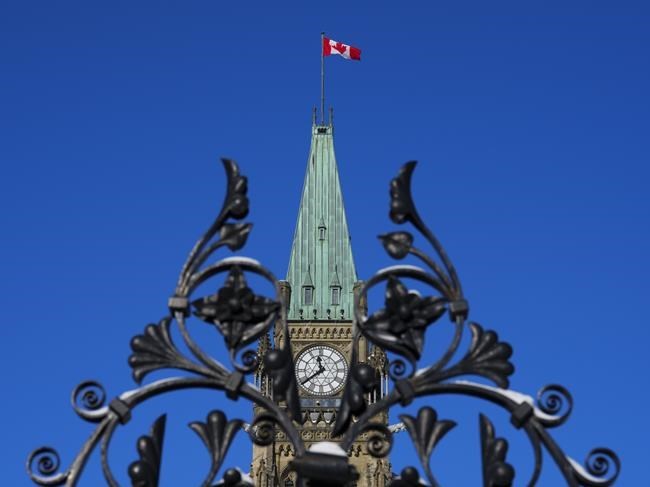OTTAWA — A Federal Court judge verbally approved a landmark $23-billion settlement on Tuesday that will see Ottawa compensate more than 300,000 First Nations children and their families over chronic underfunding of on-reserve child-welfare services.
The settlement comes more than 15 years after the Assembly of First Nations and the First Nations Child and Family Caring Society jointly launched a human-rights complaint that sparked a years-long legal battle with the federal government.
Joanna Bernard, interim national chief of the Assembly of First Nations, spoke of how the plaintiffs were resilient in advocating for themselves and their communities. She said her organization is "very, very pleased" with this outcome and eager for children and their relatives to receive the compensation as soon as possible.
Cindy Blackstock, the executive director of the First Nations Child and Family Caring Society, said on X — formerly Twitter — that she was thinking of the victims and is looking forward to see "comprehensive supports" for them as the process continues.
The society also suggested in a statement that it hopes this "historic" settlement is the last one. It says it owes it to harmed in this case, survivors of residential schools and the '60s Scoop, and the public "to ensure Canada stops its ongoing discrimination against First Nations children, youth, and families and to prevent it from happening again."
The 2007 human rights complaint revolved around allegations that Ottawa’s underfunding of on-reserve child welfare services amounted to discrimination, and that First Nations children were denied equal access to support including school supplies and medical equipment.
The tribunal found in 2016 that First Nations are adversely impacted by the services provided by the government and, in some cases, denied services as a result of the government’s involvement.
"The panel acknowledges the suffering of those First Nations children and families who are or have been denied an equitable opportunity to remain together or to be reunited in a timely manner," the 2016 ruling said.
In 2019, the Canadian Human Rights Tribunal ordered Ottawa to pay $40,000 — the maximum penalty for discrimination — to each child inappropriately removed from their homes beginning in 2006, as well as their parents or grandparents.
Child welfare was also among the central issues flagged in the report by the Truth and Reconciliation Commission, which spent six years delving into the painful church-run, government-funded residential school system that operated from the 1870s to 1996.
The proposed settlement includes $23 billion in compensation for more than 300,000 children and their families, and another $20 billion to reform the child-welfare system.
Ottawa offered to spend $20 billion to reform the child-welfare system and another $20 billion on compensation last year, but the tribunal rejected the proposal and raised concerns that not all eligible claimants would receive compensation.
Indigenous Services Minister Patty Hajdu said the settlement's approval is one piece of a broader reform of the child-welfare system, and survivors have said a monetary sum won't heal the traumas they've experienced.
"Families were shattered. People grew up not knowing anything about their backgrounds, their true connection to culture or language," Hajdu told reporters Tuesday. "And First Nations children with profound disabilities did not get access to the supports they needed to thrive."
In an interview, Hajdu added that reforming the child-welfare system to work in the best interest of children and families takes time.
She pointed to legislation passed in 2019, previously known in Parliament as Bill C-92, which gives First Nations jurisdiction over child welfare if they choose to sign on. Ten agreements have been signed across the country so far, she said.
"I can tell you it's extremely moving when a community has their own law and has begun to assume the care and control for their own children," she said.
As for the size of the settlement, Hajdu said she understands how tough it might be for people to "wrap their head around the magnitude of damage that's been done to families."
"These are individuals, families, parents of children who have suffered tremendously trying to do the best that they can with a system that discriminated in profound ways," she said.
Crown-Indigenous Relations Minister Gary Anandasangaree said the settlement is a significant step toward reconciliation.
"The cost of reconciliation goes higher and higher as we put off very critical decisions, especially on past harms," Anandasangaree said to reporters on Parliament Hill.
"And what we have done today, I think, it’s really to recognize the enormous harm that the practices have caused on young people particularly but also their families and communities."
On Monday, Blackstock had said she was "feeling encouraged that this might finally be some measure of justice for the many victims, children, youth and families of Canada’s discrimination."
But she added issues persist in the child-welfare system.
Blackstock said First Nations children living on-reserve are still subject to inequitable access to health care, and Ottawa must do more to protect them.
"We need to make sure the government of Canada actually treats children fairly. Not only today, but the day after tomorrow, and the year after," she said.
The Federal Court will resume hearing arguments on Thursday, including about the legal fees lawyers requested by lawyers involved in the case.
That bill could be as high as $80 million.
Hajdu said the federal government is appealing that cost to the courts and is negotiating "in good faith" with the lawyers to find a more "reasonable" number.
This report by The Canadian Press was first published Oct. 24, 2023.
Alessia Passafiume, The Canadian Press



